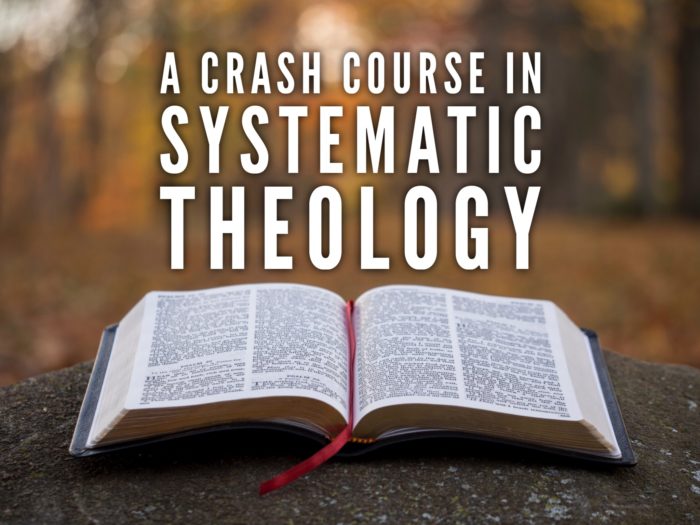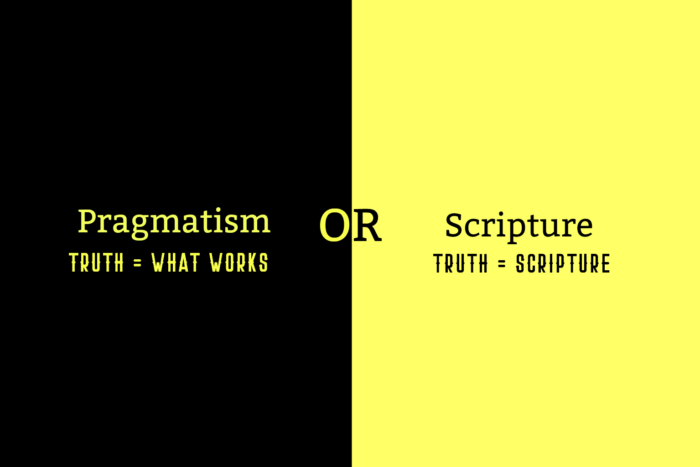
I have been thinking recently about the specific things the Bible teaches that the world hates. And, along with this, about just how many in the church are scrambling about trying to appease the world and to change and twist what the Bible says. What it has always said.
It’s a strange place we find ourselves in as Christians committed to the inerrant, inspired, and sufficient Word of God. We are labeled bigots, unloving, intolerant, etc. simply for believing what the Bible teaches. Of course, if anyone who said that knew anything about history at all, they would know that true Christians aren’t any of those things and, in fact, are responsible for much that is good in this world. But that’s another post for another day.
So what does the Bible teach (that we believe) that is so distasteful to the world and to a worldly church that is trying to appease and be like the world? (By the way, I will give only one or two verses below for each point but each of these things is an integral part of the Christian faith, as written in the Bible. They aren’t mentioned just once or twice but in several–and often many–places, so that there is no question about interpreting them correctly. This leaves us confident that there is no hidden or different interpretation than that which has always existed.)
First, Jesus is the only way to heaven. Oh, this is one that is hated and that seems so unfair. How could a kind and loving God only provide one way to spend eternity in heaven? And I have to confess that I don’t understand myself. But I believe this with the understanding that I am finite and small and God is infinite and perfect. Jesus said “I am the way, the truth, and the life. No man comes to the Father except through Me.” (John 14:6) No man comes to the Father except through Jesus Christ. A hard truth to swallow for many. This is why universalism is pushed so hard today–both outside the church and within. Many popular authors and preachers are now preaching that everyone can be saved, no matter if they believe in Jesus or not. There is even a video with Billy Graham saying this very thing.
Second, forsaking our sin is part of the deal. In Luke 5:32, Jesus says this: I have not come to call the righteous, but sinners, to repentance. Repentance is a conversion from sin to God. From sin to God. We can’t have both. But the world wants their fire insurance from hell and their sin. As do many who claim Christ. And so talking about sin and forsaking it is no longer even a thought to those in the world and it has also completely gone out of vogue in many churches.
Third, Christians are called to holiness. I Peter 1:13-16 couldn’t make this any clearer:
Therefore gird up the loins of your mind, be sober, and rest your hope fully upon the grace that is to be brought to you at the revelation of Jesus Christ; 14 as obedient children, not conforming yourselves to the former lusts, as in your ignorance; 15 but as He who called you is holy, you also be holy in all your conduct, 16 because it is written, “Be holy, for I am holy.”
Being a believer is a sober and serious task. We are to turn away from who we were in our efforts to become more Christlike. As believers, we are in a lifetime battle with our flesh. Few want to hear this news and so this doctrine is generally ignored.
Fourth, works must back up our claim to faith. James couldn’t make this any clearer:
But do you want to know, O foolish man, that faith without works is dead? James 2:20
But, just in case, you need more evidence for this unpopular truth, Jesus confirms James words in Matthew 7:18-20:
A good tree cannot bear bad fruit, nor can a bad tree bear good fruit. 19 Every tree that does not bear good fruit is cut down and thrown into the fire. 20 Therefore by their fruits you will know them.
We can expect good fruit from the life of a true believer. There may not be a lot and their “tree” may be unhealthy but there will be some fruit to back up their claim of being a believer in Jesus Christ.
I find it interesting why this one causes so much conflict. This same truth holds forth in all aspects of life. If my husband tells me he loves me, I can and will expect that to be evident in how he treats me. If we say we are committed to our job, we will expect to see that commitment played out in our lives or else we will know it is a lie. If it is like this in all of life, then why, in claims of faith in Christ, is it so distasteful and hard to believe that actions must match words in order for the words to actually be true?
Fifth, we are not to love the world. This does not mean we are not to love the people in the world or that we are to become hermits in the deep woods never talking to anyone. Obviously, we are commanded to share the Gospel, so we know that this can’t be what it means. We can go to a few places in scripture to help us understand what separating from the world does mean–
James 1:27 Pure and undefiled religion before God and the Father is this: to visit orphans and widows in their trouble, and to keep oneself unspotted from the world.
I John 2: 15-17 Do not love the world or the things in the world. If anyone loves the world, the love of the Father is not in him. 16 For all that is in the world—the lust of the flesh, the lust of the eyes, and the pride of life—is not of the Father but is of the world. 17 And the world is passing away, and the lust of it; but he who does the will of God abides forever.
While we can (and most certainly should) show love and kindness to the people of the world, we should not love the same things they do. The actual ramifications of this are staggering, when you think of it. How many Christians do you know who love the same things that their ungodly friends love? Gambling, drinking, partying, the way women dress, entertainment, anger, language, gossip, slander–why it is downright hard to tell the difference anymore between Christians and non-Christians if we look at these things. And, yet, the Bible clearly shows that this should not be. And so separating ourselves from the world is abhorred by those who desire the things of this world or just don’t have the courage to look different from the world. This leaves us with a weak and ineffective church. For how can you encourage someone to new life in Christ if your life looks just like theirs? What do you even have to offer?
Sixth, homosexuality is a sin. I guess we could see this one coming back in the 80s. Right around the time Murphy Brown had her child out of wedlock and Dan Quayle was crucified for mentioning the immorality of this, I think I knew things were changing. Anyone else remember that? When we start tossing out the morality of the Bible, anything goes. We shouldn’t be surprised. And so the world doesn’t just hate that homosexuality is labeled a sin, it hates that anything is labeled a sin. This really stems back to the rebellion that lives in the hearts of the unredeemed. Christians may cave to the desires and the name-calling and the pressure, but it doesn’t change the truth. All sex outside of marriage between a man and woman is sin. Here are a few verses to confirm this–
I Corinthians 7:2 Nevertheless, because of sexual immorality, let each man have his own wife, and let each woman have her own husband.
I Timothy 1:8-11 Now we know that the law is good, if one uses it lawfully, 9 understanding this, that the law is not laid down for the just but for the lawless and disobedient, for the ungodly and sinners, for the unholy and profane, for those who strike their fathers and mothers, for murderers, 10 the sexually immoral, men who practice homosexuality, enslavers, liars, perjurers, and whatever else is contrary to sound doctrine, 11 in accordance with the gospel of the glory of the blessed God with which I have been entrusted.
Romans 1:26-27 For this reason God gave them up to dishonorable passions. For their women exchanged natural relations for those that are contrary to nature; 27 and the men likewise gave up natural relations with women and were consumed with passion for one another, men committing shameless acts with men and receiving in themselves the due penalty for their error.
If we read on in Romans 1, we will find a description of our current culture–
And since they did not see fit to acknowledge God, God gave them up to a debased mind to do what ought not to be done. 29 They were filled with all manner of unrighteousness, evil, covetousness, malice. They are full of envy, murder, strife, deceit, maliciousness. They are gossips, 30 slanderers, haters of God, insolent, haughty, boastful, inventors of evil, disobedient to parents, 31 foolish, faithless, heartless, ruthless. 32 Though they know God’s righteous decree that those who practice such things deserve to die, they not only do them but give approval to those who practice them.
And so this is where we are. Believing the unpopular truths that the Bible teaches in a culture that hates the God of the Bible. But believing or not believing what the Bible teaches doesn’t change the truth. And the truth is that the Bible is TRUE. It has been proven over and over. There is an incredible and miraculous validity to the scriptures. The Christian faith that has been passed down since its inception is solid and true. No matter what others like or don’t like; believe or don’t believe.
If we can remember this, it will help us stand strong and confident–not in our own selves. Never in our own selves. But in the Word of God. The Holy Bible that was given to us by God in order to know Him and to make Him known.
So let us stay true to the Word, no matter if the whole world turns against us. And remember–
What then shall we say to these things? If God is for us, who can be against us?
(Romans 8:31)










